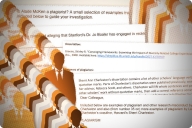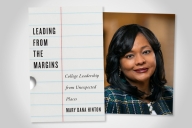You have /5 articles left.
Sign up for a free account or log in.
With the proliferation of scholarly journals – particularly open-access Internet journals that charge author fees – some librarians consider themselves on the front lines of the fight to preserve quality publishing. The weapon of choice for some, including Jeffrey Beall, associate professor and scholarly initiatives librarian at the University of Colorado Denver? The blog.
But some publishers have taken up their own arms – including threats of lawsuits – in defense, raising questions about academic freedom and librarians in the Internet age.
Via its lawyer earlier this month, the Canadian Center for Science and Education, publisher of numerous open-access journals charging several-hundred dollar author fees, sent a letter to Beall informing him that his inclusion of the company and several of its products on a list of a possible-to-probable “predatory” journals on his blog amounted to defamation and libel.
The letter requests that Beall remove the publisher’s name and those of its journals – Sciedu Press, Macrothink Institute and RedFame Publishing – from the blog immediately, due to their inclusion’s “natural tendency to injure our client’s reputation.” If Beall doesn't comply in writing with such demands (including payment of $10,000 in lawyer fees and damages) by Monday, the publisher will subject him to "civil action" in a California court. (Note: This story has been updated from an earlier version.)
The letter cites "Beall's List of Predatory Publishers 2013," as "actionable libel," particularly its recommendation that “researchers, scientists and academics avoid doing business with these publishers and journals. Scholars should avoid sending article submissions to them, serving on their editorial boards or reviewing papers from them, or advertising in them. Also, tenure and promotion committees should give extra scrutiny to articles published in these journals, for many of them include instances of author misconduct.”
Beall, who’s been running the blog devoted to critical analysis of scholarly open-access publishing for about a year, declined to answer questions specifically related to the letter or the Canadian Center for Science and Education. But he said predatory open-access journals are those that unprofessionally exploit the author-pays, open-access model for their own profit. He guessed that amounted to 5 to 10 percent of open-access journals, which have proliferated in recent years due to increased pressure on academics, particularly in Asia, to publish.
Librarians should play a critical role in alerting academics to publishers that have taken advantage of this environment for several reasons, Beall said in an e-mail interview. “First, for tenure-track researchers, promotion and tenure committees may not recognize work published in low-quality venues. Second, when one’s work appears side-by-side with other works that contain author misconduct, such as plagiarism, image and data manipulation, etc., it devalues the work of the honest author.”
Digital preservation can be a low priority for such publishers, he added, meaning that a scholar’s work could disappear along with a journal, should it go out of business.
Neither the Canadian Center for Science and Education nor its California-based lawyer responded to requests for comment.
A University of Colorado Denver spokeswoman said it would be too soon to comment on what kind of legal support it would offer Beall, should the publisher’s letter evolve into a lawsuit. She said the university had not, to her knowledge, been contacted by the publisher to encourage Beall to remove his posts and that the university was aware his blog was still “up and running."
Barbara Fister, professor and librarian at Gustavus Adolphus College; editor of a new, open-access journal that doesn’t charge author-side fees; and blogger for Inside Higher Ed, said Beall’s blog was “well-known and often consulted.” The blog is particularly critical of open-access journals that charge author-side fees, “some of which, indeed are not worth publishing in, just as there are many low quality, non-open-access publishers who prey on scholars desperate to publish," she said.
This isn’t the first lawsuit a publisher has threatened against a librarian in recent months. Edwin Mellen Press this summer filed two lawsuits in a Canadian court seeking more than $4 million in damages from Dale Askey, associate university librarian at McMaster University, and the Ontario institution, for questioning the quality of the press on his own blog.
No court date has been set for that case.
Seen side-by-side, Fister said both cases were an attempt to chill speech at a time when universities need librarians to help them navigate the rapidly changing publication landscape. “In a time when options are proliferating, that advisory role is increasingly important and needs protection from nuisance lawsuits and other attempts to stifle professional and measured speech.”
But, she said, such moves ultimately may be self-defeating.
“While the Internet makes it easier to share opinions in writing, it also makes it harder for a publisher to sue its way toward a good reputation, because once word gets out, any number of librarians and scholars confirm in writing, loudly, exactly what the defendant in the suit is being sued for saying,” she said. “The number of librarians who will never buy a book published by Mellen and the number of scholars who will avoid ever signing a contract with them went up enormously as a result of their nuisance suit. This is not a business plan I would recommend to publishers.”
Brandon Butler, director of public policy initiatives for the Association of Research Librarians, which on Thursday released a letter of public support for Askey, took a similar view.
“In either case, litigation is the wrong choice, even if you think you will win,” he said, calling the move short-sighted and strategically imprudent. “When you complain about people doing things and treating you poorly, people pay more attention to what you’ve done.”









